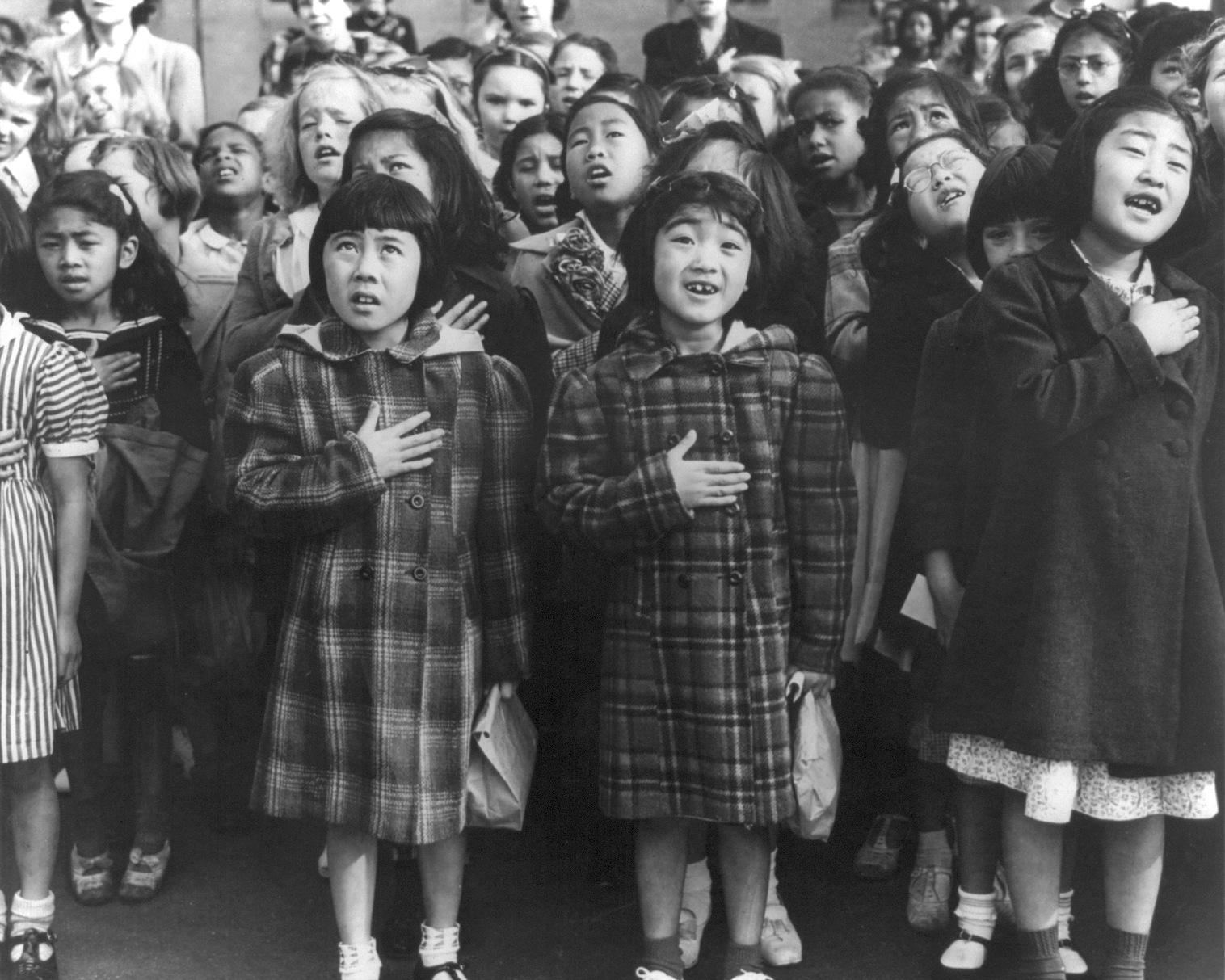Banaler Nationalismus: Unterschied zwischen den Versionen
(Bluelink 1 book for verifiability (prndis)) #IABot (v2.0) (GreenC bot) |
(A brief expansion on the origin of the concept) |
||
| Zeile 4: | Zeile 4: | ||
'''Banal nationalism''' refers to the everyday representations of the nation which build a shared sense of national belonging amongst humans, a sense of [[tribalism]] through | '''Banal nationalism''' refers to the everyday representations of the nation which build a shared sense of national belonging amongst humans, a sense of [[tribalism]] through | ||
[[national identity]]. | [[national identity]]. | ||
The term is derived from English academic, [[Michael Billig]]'s 1995 book of the same name and is intended to be understood critically. The concept has been highly influential, particularly within the discipline of [[political geography]], with continued academic interest since its publication in the 1990s.<ref name="Koch">{{cite journal|last1=Koch|first1=Nathalie|author2=Anssi Paasi|title=Banal Nationalism 20 years on: Re-thinking, re-formulating and re-contextualizing the concept|journal=Political Geography|date=September 2016|volume=54|pages=1–6|doi=10.1016/j.polgeo.2016.06.002}}</ref> Today the term is used primarily in academic discussion of [[identity formation]] and [[geopolitics]]. | The term is derived from English academic, [[Michael Billig]]'s 1995 book of the same name and is intended to be understood critically. Billig's book has been described as 'the fourth most cited work on nationalism ever published'.<ref>{{cite book name= last1=Skey|first1=Michael|author2=Marco Antonsich|date=2017title=Everyday Nationhood| publisher=Palgrave Macmillan| page=1}} The concept of 'banal nationalism' was intended to highlight the routine and often unnoticed ways that established nation-states are reproduced from day to day. The concept has been highly influential, particularly within the discipline of [[political geography]], with continued academic interest since its publication in the 1990s.<ref name="Koch">{{cite journal|last1=Koch|first1=Nathalie|author2=Anssi Paasi|title=Banal Nationalism 20 years on: Re-thinking, re-formulating and re-contextualizing the concept|journal=Political Geography|date=September 2016|volume=54|pages=1–6|doi=10.1016/j.polgeo.2016.06.002}}</ref> Today the term is used primarily in academic discussion of [[identity formation]] and [[geopolitics]]. | ||
Examples of banal nationalism include the use of flags in everyday contexts, [[nationalism in sport|sporting events]], [[national anthems|national songs]], symbols on money,<ref>{{cite journal|last1=Penrose|first1=Jan|title=Designing the nation. Banknotes, banal nationalism and alternative conceptions of the state|journal=Political Geography|date=November 2011|volume=30|issue=8|pages=429–440|doi=10.1016/j.polgeo.2011.09.007}}</ref> popular expressions and turns of phrase, patriotic clubs, the use of implied togetherness in the national press, for example, the use of terms such as ''the'' prime minister, ''the'' weather, ''our'' team, and divisions into "domestic" and "international" news. Many of these symbols are most effective because of their constant repetition, and almost [[subliminal messages|subliminal]] nature. Banal nationalism is often created via state institutions such as schools.<ref>{{cite web | Examples of banal nationalism include the use of flags in everyday contexts, [[nationalism in sport|sporting events]], [[national anthems|national songs]], symbols on money,<ref>{{cite journal|last1=Penrose|first1=Jan|title=Designing the nation. Banknotes, banal nationalism and alternative conceptions of the state|journal=Political Geography|date=November 2011|volume=30|issue=8|pages=429–440|doi=10.1016/j.polgeo.2011.09.007}}</ref> popular expressions and turns of phrase, patriotic clubs, the use of implied togetherness in the national press, for example, the use of terms such as ''the'' prime minister, ''the'' weather, ''our'' team, and divisions into "domestic" and "international" news. Many of these symbols are most effective because of their constant repetition, and almost [[subliminal messages|subliminal]] nature. Banal nationalism is often created via state institutions such as schools.<ref>{{cite web | ||
Version vom 10. September 2020, 12:27 Uhr

Banal nationalism refers to the everyday representations of the nation which build a shared sense of national belonging amongst humans, a sense of tribalism through
national identity.
The term is derived from English academic, Michael Billig's 1995 book of the same name and is intended to be understood critically. Billig's book has been described as 'the fourth most cited work on nationalism ever published'.Referenzfehler: Für ein <ref>-Tag fehlt ein schließendes </ref>-Tag. Today the term is used primarily in academic discussion of identity formation and geopolitics.
Examples of banal nationalism include the use of flags in everyday contexts, sporting events, national songs, symbols on money,[1] popular expressions and turns of phrase, patriotic clubs, the use of implied togetherness in the national press, for example, the use of terms such as the prime minister, the weather, our team, and divisions into "domestic" and "international" news. Many of these symbols are most effective because of their constant repetition, and almost subliminal nature. Banal nationalism is often created via state institutions such as schools.[2]
Michael Billig's primary purpose in coining the term was to clearly differentiate everyday, endemic nationalism from extremist variants. He argued that the academic and journalistic focus on extreme nationalists, independence movements, and xenophobes in the 1980s and 1990s obscured the modern strength and the most common strain of contemporary nationalism, by implying that it was a fringe ideology.[3] He noted the almost unspoken assumption of the utmost importance of the nation in political discourse of the time, for example in the calls to protect Kuwait during the 1991 Gulf War, or the Falkland Islands in 1982. He argues that the "hidden" nature of modern nationalism makes it a very powerful ideology, partially because it remains largely unexamined and unchallenged, yet remains the basis for powerful political movements, and most political violence in the world today. Banal nationalism should not be thought of as a weak form of nationalism, but the basis for "dangerous nationalisms" [4] However, in earlier times calls to the "nation" were not as important, when religion, monarchy or family might have been invoked more successfully to mobilize action. He also uses the concept to dispute post-modernist claims that the nation-state is in decline, noting particularly the continued hegemonic power of American nationalism.
Further reading
References
- ↑ Vorlage:Cite journal
- ↑ Vorlage:Cite web
- ↑ Referenzfehler: Es ist ein ungültiger
<ref>-Tag vorhanden: Für die Referenz namensKochwurde kein Text angegeben. - ↑ Vorlage:Cite web
Vorlage:Nationalism Vorlage:Use British English Oxford spelling Vorlage:Use dmy dates
